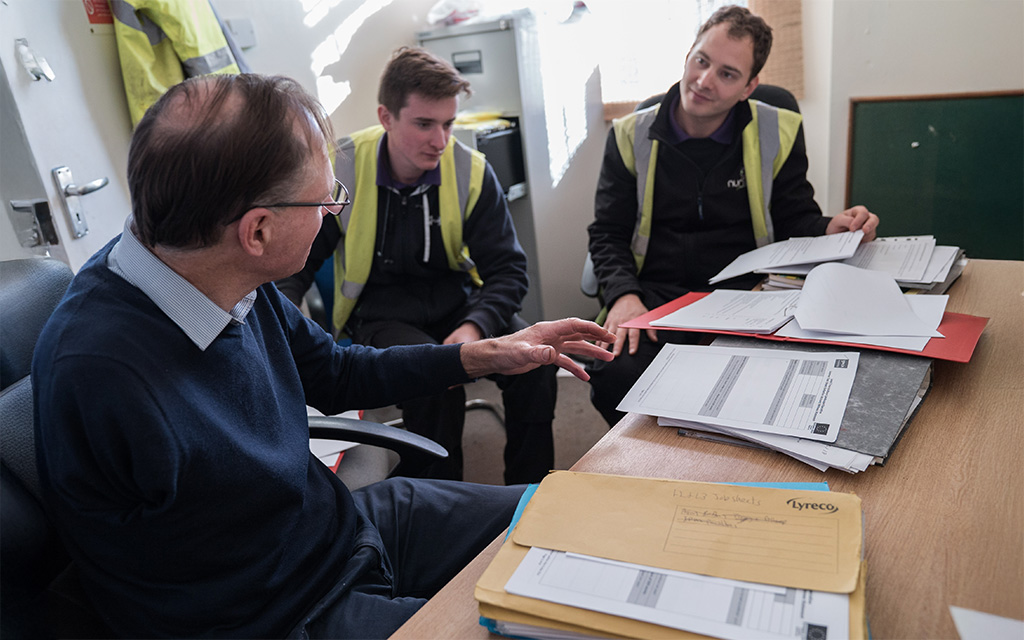Closing the skills gap in horticulture
BALI GoLandscape and Central YMCA are determined to get more young people excited about landscaping
|
BALI GoLandscape and Central YMCA joined forces in October 2018 in a bid to get more young people into landscaping.
GoLandscape is the education and careers arm of BALI – The British Association of Landscape Industries – which was formed in response to a shrinking, under skilled workforce. It’s hoped that this new partnership will reboot the reputation of the industry and debunk the myth that gardening is just for grandads.

BALI has over 900 members comprising of landscapers, colleges, designers and suppliers. According to a recent BALI members’ survey, horticulture businesses are finding it hard to recruit the right people with the right skills:
42% of businesses who participated in the survey said their biggest skills shortage was ‘hard landscaping’ – the construction element which improves outdoor spaces. 22% of businesses also said ‘maintenance’ was an issue. When it comes to recruitment, only 14% of employers would definitely look to employ a landscaping college graduate, which would suggest that most courses are failing to equip newly qualified landscapers with the right skills. BALI’s Education Officer, Stephen Ensell who commissioned the survey, shares his members’ concerns:
“Although our members are growing their businesses and taking on more work, they can’t expand their teams to meet the demands because they simply can’t find the skilled labour. They are interviewing a lot of people, but many aren’t a good fit and don’t really understand the industry. There are roles, but we’re struggling to fill the gaps with skilled labour.”
Perception is everything
Steve says perception and awareness of the industry is also part of the problem:
“Horticulture is a career that’s not on a lot of people’s radars. They don’t understand the size of the industry or the opportunities that are available. Many view horticulture and landscaping as an unacademic, unskilled profession. When kids visualise gardening, they tend to see it as a weekend hobby that their parents or grandparents would do. Horticulture is bigger than gardening – we’re talking about trained and experienced professionals who do a lot more than just push a mower around.”
According to last year’s ‘Economic Impact of Ornamental Horticulture and Landscaping in the UK’ report by Oxford Economics, the horticulture industry contributed £24.2 billion to Britain’s GDP in 2017. Not only do people overlook the significant contribution that horticulture makes to our economy, but people also fail to grasp the range of roles that are available.
There are many career choices in horticulture
Steve develops horticulture apprenticeship qualifications, works with training providers like Central YMCA and offers educational support to BALI members. Part of his role involves facilitating industry ambassadors to go into schools and colleges to explain that landscaping is a rewarding and varied career. Steve is living proof of this:
“I’ve always been connected to horticulture – in my youth, I went to work for a local garden centre one summer, but stayed for five years and worked my way up. I’d watch Landscapers rock up in their trucks, get their plants and go off to do interesting projects. I wanted to do that too, so I set up my own landscaping business which I ran for nine years. Then I became a manager for five years at a local independent garden centre, then I went into teaching and taught horticulture in prisons and colleges for three years.”
Plugging the skills gap
In a bid to address the skills shortage, Central YMCA and BALI are currently rolling out the Level 2 Horticulture Operative Apprenticeship around the country which covers core, essential skills for any would-be landscaper. BALI has also just launched a more senior Level 3 Horticulture Supervisor Apprenticeship qualification for apprentices who aspire to leadership roles with more responsibility.
Together – through education and raising awareness – Central YMCA and BALI hope to steer more trained, qualified and skilled young people into the industry.
Employers also need to do their part
The other challenge is convincing employers to make the most of their apprenticeship levy before they lose it and have the confidence to take on apprentices. Steve believes that due to pre-conceived ideas of how previous apprenticeship schemes have operated in the past, take-up has been slow:
“This time, the government wants to give back control to the employer so they can decide for themselves how the apprenticeship will work, who they will take on and what training provider they will use. This is great in some ways, but not all employers understand it. If they don’t understand it, they are less likely to take it up. In reality, it’s actually not that complicated and employers need to understand the value of having an apprentice.”
Thanks to Central YMCA’s vast experience and knowledge, horticulture apprenticeships needn’t be as daunting as they first appear. Central YMCA also has the edge over other training providers in that their tutors will work with each apprentice on the employer’s site instead of employers losing their apprentices one day a week to college.
Everyone’s a winner!
Horticultural apprenticeships can only be beneficial to employers, the next generation of landscapers and the industry as a whole:
“Central YMCA has got a very good understanding of how apprenticeships work – they know the ins and outs of the levy and how employers should make the most of it. They will guide the employer through the process and explain what taking on an apprentice looks like, the level of commitment involved and what’s expected. In the end, the company will get an employee who is skilled, well-trained and an asset to the company, which in turn, is plugging the skills gap.”
Working in partnership
Central YMCA has been working with employers for over 40 years to train apprentices. We understand how employers work and have a dedicated Apprenticeship Team to help them navigate the world of apprenticeships. From skills gap analysis to recruitment, through to monitoring apprentice progression, we’re here to support you.





